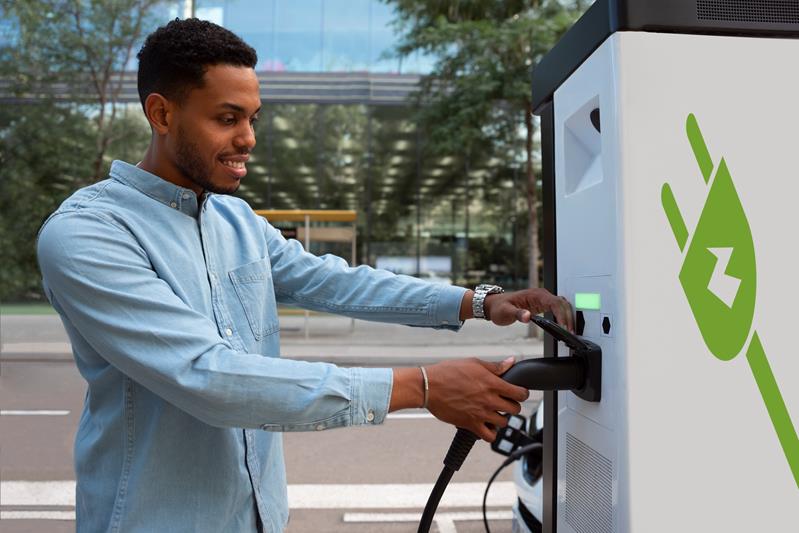The automotive sector undergoes constant progression and enhancement. For decades, enthusiasts have been speculating about the future of automobiles. Thanks to changes in the market and the influence of economic and environmental initiatives, the electric car has become a significant leader. So are electric cars the future of the automotive market?
What Are Electric Cars All About?
The global rise in popularity of electric vehicles is undeniable. Major automobile manufacturers are gradually phasing out traditional gasoline and diesel engines, transitioning their models to electric power.
Electric cars actually preceded those with internal combustion engines, emerging in the early stages of the 19th century. Initially, they garnered considerable popularity – in the United States alone, electric vehicles constituted over 40% of the automotive landscape during that period. However, the ascendancy of the oil industry and advancements in internal combustion engines pushed electric vehicles into the shadows due to their restricted range and complex charging procedures. Interest in environmentally friendly vehicles resurged in the 1970s amidst soaring fuel costs. Presently, this form of transportation is undergoing a revival.
An electric vehicle is a distinct form of transportation that operates solely on electricity, eschewing the need for a traditional internal combustion engine. It is propelled by electric motors and a traction battery. One notable aspect of this technology is its capacity to provide maximum torque right from the outset, resulting in a notably dynamic driving experience, particularly during acceleration.
An electric vehicle is a distinct form of transportation that operates solely on electricity, eschewing the need for a traditional internal combustion engine. It is propelled by electric motors and a traction battery. One notable aspect of this technology is its capacity to provide maximum torque right from the outset, resulting in a notably dynamic driving experience, particularly during acceleration.There are three types of electric vehicles to suit different driver needs. The first is self – harging electric cars with a large battery powering the electric motors. The second is plug-in hybrid electric vehicles, which use both gasoline and electricity. The third is fuel-cell electric vehicles, which produce electricity by combining hydrogen and oxygen.
Why EVs Are Becoming Popular
Why do electric cars deserve their popularity today? When it comes to this type of transport, the electric cars benefits become clear.
They are economical in terms of fuel and maintenance costs, because charging costs much less, and maintenance is required less frequently and easier. More reliable due to fewer parts, which reduces the risk of breakdowns along the way. At the same time, they also benefit the environment without emitting harmful gases into the atmosphere. Add to this safety, comfort and maneuverability, and it becomes clear why electric cars are becoming increasingly popular.
In addition, low tax is a significant advantage. People who have at least once encountered insurance or customs formalities when buying a car know that the tax on electric cars is much lower. In addition, many cities in Europe and other parts of the world actively encourage the use of electric vehicles by providing drivers with free charging stations, free parking and other benefits.

Challenges of Electric Cars
Despite several advantages, electric vehicles also have their disadvantages that are worth considering. For example, many may be put off by the price. While the operating costs of electric vehicles may be lower, the initial purchase costs are usually higher compared to internal combustion engine vehicles. However, over time, prices for electric vehicles are falling, making them more affordable.
In addition, it is worth remembering that charging a car takes longer than refueling a gasoline car. And unfortunately, fast charging stations are not yet as common as gas pumps. However, infrastructure development is actively progressing and this issue will be resolved soon.
Moreover, the limited travel range could become one of the barriers to EV adoption. Currently, most electric vehicles can travel between 150 and 400 kilometers on a single charge, which can be a problem for those who frequently travel long distances.
Building a Global Charging Network for Electric Cars
Electric vehicles (EVs) have become very popular in recent years as an environmentally friendly alternative to traditional gasoline-powered vehicles. As EV adoption increases, charging infrastructure becomes a critical aspect. The future of electric vehicle charging has enormous potential, not only in terms of speed and convenience, but also in creating a greener, cleaner energy system.
The main goal of developing electric vehicle charging infrastructure is to reduce charging time. Fast charging using direct current at powers of 50-350 kW allows you to charge batteries in 30 minutes – several hours. Ultra-fast charging technologies at powers above 350 kW, up to 1 MW, can reduce charging times to several minutes. This requires reliable infrastructure and electric vehicles that can handle high charging power, as well as battery safety and longevity.
The future of electric vehicle charging depends not only on speed but also on smart infrastructure. It optimizes energy use, reduces network load and provides convenient charging. Intelligent systems analyze tariffs, network demand and driving style to charge cars to the required level by morning. The infrastructure also supports bidirectional power flow (V2G), allowing electric vehicles to feed excess energy into the grid.
Using solar and wind energy to charge electric vehicles helps reduce greenhouse gas emissions and provides a sustainable energy supply. Storing excess renewable energy allows it to be used efficiently during periods of peak demand. This approach contributes to a clean and green transport system, reduces load on the grid and maintains stable energy production.
Wireless charging of electric vehicles using electromagnetic fields could change the way people charge, making it more convenient. However, high energy losses and infrastructure costs are problems that our engineers at CLOU are working on. Improving efficiency and solving the billing problem are key aspects of the research.
How the World Is Encouraging EV Adoption
The future looks bright for the advancement of electric automobiles. Governments worldwide are rolling out policies and incentives to spur the uptake of electric cars, such as tax benefits, subsidies, and the expansion of charging infrastructure. Consequently, the electric vehicle sector is poised for significant expansion in the forthcoming years.
Furthermore, automotive companies are pouring substantial resources into enhancing the sustainability of electric vehicles through research and development efforts. Numerous major car manufacturers have unveiled strategies to electrify their vehicle fleets, with some committing to complete electrification in the near term. Heightened competition and investment in electric automobiles will propel further technological breakthroughs and drive down costs, rendering them more accessible to a broader spectrum of consumers.




